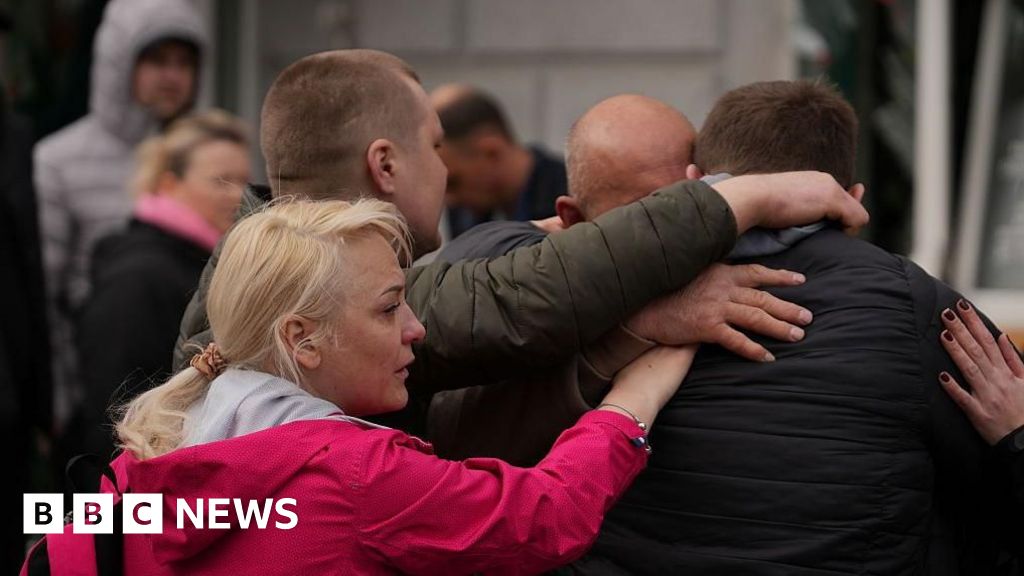The US is Israel’s accomplice, not a ceasefire mediator | Israel-Palestine conflict
On July 21, 2006, nine days into the 34-day Israeli war on Lebanon that killed 1,200 people, United States Secretary of State Condoleezza Rice opined that “an immediate ceasefire without political conditions does not make sense”.
In response to a journalist’s question at a press briefing, the secretary declared that she had “no interest in diplomacy for the sake of returning Lebanon and Israel to the status quo ante”.
In addition to manoeuvring to delay a ceasefire, the US also expedited shipments of precision-guided bombs to Israel to assist in the mass slaughter.
Just two and a half years later, Rice was back agitating against a too-quick ceasefire in the Gaza Strip, where over the course of 22 days in December 2008 and January 2009 Israel massacred some 1,400 Palestinians.
In this case, Rice claimed that the US was “working toward a ceasefire that would not allow a re-establishment of the status quo ante where Hamas can continue to launch rockets out of Gaza”, Hamas’s largely ineffectual rockets clearly being a graver problem than the slaughter of 1,400 people.
Fast forward 15 years to Israel’s straight-up genocide in the Gaza Strip, which is undoubtedly a more effective means of eradicating the “status quo ante” – at least if we take “status quo ante” to mean Gaza and its inhabitants. With official fatalities now exceeding 40,000 Palestinians and predictions that the real death toll may in fact be many times higher, an immediate ceasefire is the only non-genocidal option on the table.
And while US President Joe Biden has repeatedly stressed the urgency of just such a ceasefire, it is a bit tricky to stop a war when you have just approved an additional $20bn in weapons transfers to the party that has officially killed nearly 17,000 Palestinian children since October.
Indeed, current US qualifications to ostensibly mediate a ceasefire in Gaza are rather dubious given that the country could easily be taken for a de facto belligerent to the conflict. On Sunday, The New York Times reported that, like Israel, the US has “poured vast resources into trying to find” Hamas leader Yahya Sinwar, and has not only “provided ground-penetrating radar” to Israel but also tasked US spy agencies “with intercepting Mr Sinwar’s communications”.
The Times quotes White House national security adviser Jake Sullivan on additional US contributions to the obsessive search for Sinwar: “We’ve had people in Israel sitting in the room with the Israelis working this problem set. And obviously we have a lot of experience hunting high-value targets”.
But again, simultaneously “hunting” the leader of the very organisation one professes to be negotiating a ceasefire with does not exactly speak to one’s credibility as a mediator.
According to the Times article, US officials believe that Sinwar’s killing or capture would give Israeli Prime Minister Benjamin Netanyahu “a way to claim a significant military victory and potentially make him more willing to end military operations in Gaza” – a most convincing argument, no doubt, for extrajudicial assassination.
Not that Netanyahu is interested in ever really “ending” anything, anyway, regardless of Sinwar’s fate. The Israeli premier, after all, is of the opinion that Israel reserves the right to resume fighting Hamas notwithstanding any ceasefire agreement, which kind of defeats the whole purpose.
On Tuesday, the Times of Israel reported that, although US officials persisted in insisting on “progress” in ceasefire negotiations, Israel’s Channel 12 news had learned that the “thorny issues” had been set aside for the time being: “The network said American mediators hope to reach agreements on other matters first, such as Israel’s ability to veto the release of some Palestinian security prisoners and exile others.”
The “thorny” stuff includes matters like whether Israel should be allowed to keep occupying the entire length of Gaza’s border with Egypt after the war. This issue would be “left to the very end of talks, according to the [Channel 12] report, which quoted officials saying they don’t believe Hamas chief Sinwar will budge on the Gaza-Egypt border unless he feels the [Israeli military] is closing in on him,” The Times of Israel reported.
Per the diplomatic hallucinations of White House national security spokesperson John Kirby, delaying tactics in the interest of enabling the perpetual occupation of whatever remains of the Gaza Strip are apparently indicative of “constructive” talks.
And in the meantime, of course, genocide proceeds apace, as the Israeli military goes about inflicting unceasing terror and starvation on the civilian population. Access to water and aid delivery has now been restricted in the city of Deir el-Balah in central Gaza, where the United Nations has been forced to shut down operations once again in order to abide by Israel’s pathological evacuation orders.
To be sure, Israel’s habit of commanding Palestinians to evacuate an area and then bombing them when they comply is hardly “constructive”.
The New York Times dispatch on US assistance in the “hunt” for Sinwar quotes a senior Israeli official on the “priceless” nature of US intelligence support. But as the United States continues buying Israel time for the obliteration of the status quo ante in Gaza along with all pretences to human decency and morality, the world itself will pay the price.
The views expressed in this article are the author’s own and do not necessarily reflect Al Jazeera’s editorial stance.
Check out our Latest News and Follow us at Facebook
Original Source






